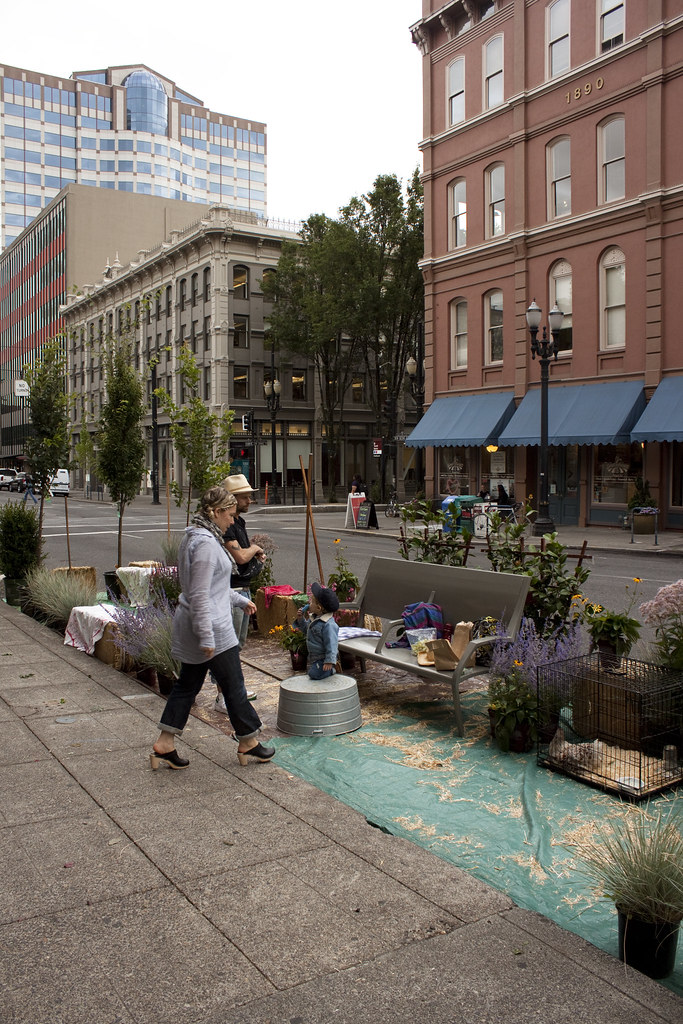“Edel was interested in ways of bringing back manufacturing jobs to the city,” explains Melanie Hoekstra, director of operations at The Plant. The building is uniquely suited to food production; it contains food-grade materials (these allow for legal and safe food preparation) because of its meatpacking history. Instead of combining farming with other types of manufacturing, The Plant is sticking entirely to food—and lots of it.
I think we posted something about this project last year, emphasizing aspects that are recurring Unconsumption topics: adaptive reuse — the conversion of existing buildings to new uses — and urban farming. (Though I’m not finding an earlier post about it in the Unconsumption archive. Ah, thanks, Tumblr search.) Anyway, it’s great to see that the project’s progressing nicely.
Via gardensinunexpectedplaces:
Via steveleathers:
For PARK(ing) Day, my company created an Urban Farmlet on SW 2nd Street in Portland (between Taylor and Yamhill).
It’s only two parking spots, but it feels like a lot more. If you’re in the area, come by and check it out. Have some lemonade. Enjoy some space that you normally wouldn’t have the chance to.
Happy 2011 PARK(ing) Day, y’all.
PARK(ing) Day is an annual, worldwide event that invites citizens everywhere to transform metered parking spots into temporary parks for the public good.
Click here to view a map of cities where residents have set up pop-up parks.
See also: Earlier Gardens in Unexpected Places post here.
Today, in “things I love.”
Via smartercities:
surp:
Urban Farms Sprouting on New York City Rooftop
Huffington Post describes the video above:
… Reuters takes a look at the initiatives of an ambitious organic farming business, Brooklyn Grange, looking to transform NYC’s vast expanse of empty rooftops into lush forests of food.
Brooklyn Grange’s first farm is a 40,000-square-foot warehouse rooftop that grows hundreds of thousands of plants without the use of pesticides or other chemicals. According to its website, tomatoes are one of its biggest crops with over 40 varietals planted.
Head Farmer Ben Flanner is no stranger to the task; after quitting his finance job, he founded Eagle Street Rooftop Farm in 2009 — a 6,000-square-foot farm in Brooklyn that was the first rooftop soil farm in New York.
Flanner tells Reuters that the farm is not only a way to provide fresh and healthy food directly to the local community, but does its part in greening the city by absorbing storm-water runoff and also cooling the building underneath.






